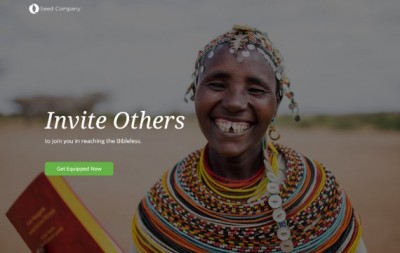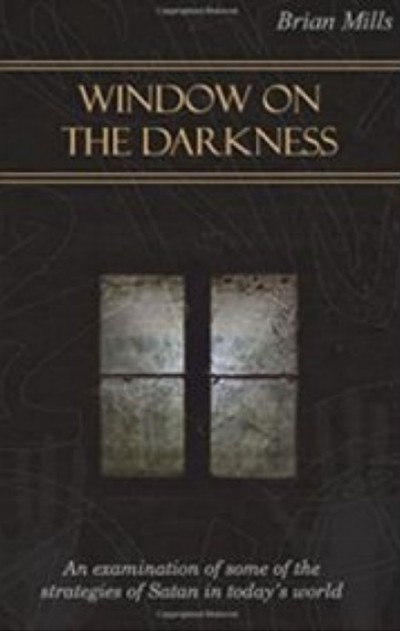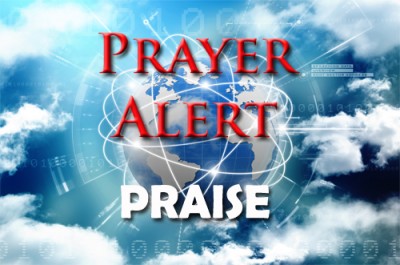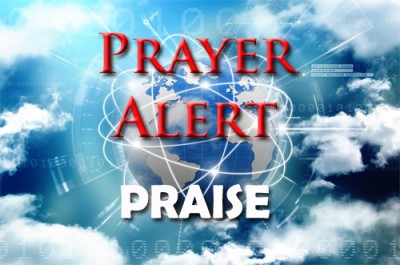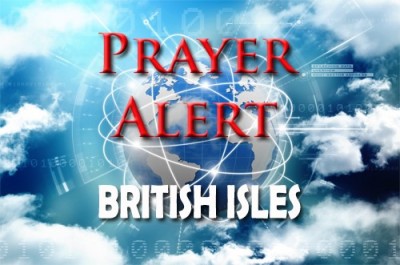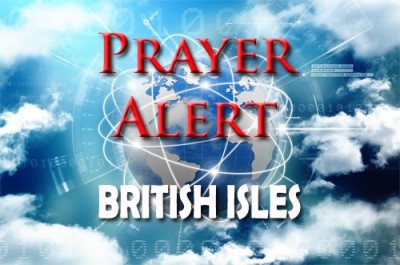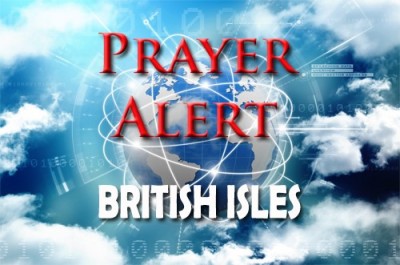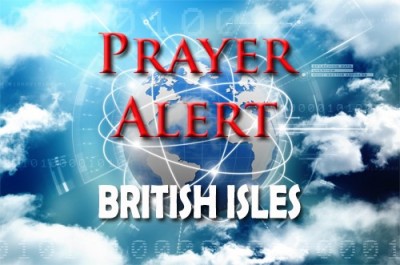Dear International Prayer Connect Pray for ZERO warriors,
Thank you for fulfilling the Great Commission through prayer so all people can have God’s Word in their language. Your role is critical to getting to ZERO!
If we are to meet the God-sized goal of starting Bible translation in every language by 2025 in the remaining 1,903 Bibleless people groups, we need the power of the Holy Spirit and a global team who will go the distance together.
We want to invite you to a new initiative that will create and unite advocates as voices for the Bibleless in communities near and far. Click below to hear about your role in this:
Become a Voice for the Bibleless...
Visit The Seed Company Advocacy Webpage for further guidance and resources on your journey.

Solomon Lujan - Global Director of Prayer
Email: This email address is being protected from spambots. You need JavaScript enabled to view it.
This is a second edition of this widely read and highly acclaimed book written by the respected father of the worldwide Prayer Movement - Brian Mills.
Have you ever wondered just why the darkness in the world today seems to be getting darker, and what can be done about it?
This book sheds fresh light on this topic, and on the spiritual nature of this darkness. It shines the light of Scripture on the evil one and on the way in which so many have become bewitched. This is a clarion call to the church and individual Christians to get ready to do battle with the powers of darkness, and to shine Christ's light more powerfully.
Brian Mills writes out of many years of experience in international prayer ministry. He is a senior advisor in the International Prayer Council and is one of the leaders in the International Reconciliation movement. He has ministered in over 75 nations and authored nine books to date. He is also part of a global group that is seeking to understand more about the dark spiritual powers at work in the world.
Excerpts from some recent reviews:
"An informative book on the operation of spiritual darkness and the need for Christ’s people to stand against it." (John D Robb - Chairman, IPC Prayer)
'Thought provoking insights into the spiritual aspects of today's world and reminder of our role to pray. Well worth a read.' JRB - Amazon
'An easily read and timely call to vigilance and to personal holiness. Much needed. We've bought a number of copies for passing on to friends.' RC - Amazon
'Strategic book for understanding tactics of the enemy! I have now read this twice it is so appropriate for preparation for mission, for church leaders and intercessors!' Anon - Amazon
This version includes some minor revisions, lay-out changes and is increased to 150 pages.
Order ‘Window on the Darkness’ by Brian Mills in print or Kindle formats from:
Amazon USA http://a.co/7zeqIKd $11.36 Paperback | $3.74 Kindle
Amazon UK http://amzn.eu/0BMEL6l £8.99 Paperback | £2.99 Kindle
Pastor Paul, ex-Freemason
05 Aug 2021Paul joined the Freemasons to help his tree surgery business and as part of his search for healing after deaths in his family. Becoming a Freemason did in fact help his tree business; it grew by one-third. He wasn’t interested in the secret ceremonies, rituals, symbols, and oral pledges. In fact, he later found the same words were used by witches and warlocks. Paul’s wife had a double personality, causing him intolerable pain. In domestic agony he remembered God from his childhood and prayed: ‘I don’t know if You’re there. I’m such a sinner. I haven’t spoken to You for years. But I need help. I’m desperate.’ Two days later, after taking down a tree for a lady, she came up to him and said, ‘The Lord has been speaking to me. You’ve been praying. I’d like to help you.’ He now is Pastor Paul and leads men out of Freemasonry. To read his testimony click the ‘More’ button.
UK Olympian's Christian testimony
05 Aug 2021Team GB swimmer Daniel Jervis has thanked God and his family church for their support during his Olympic participation. ‘I want to thank my village of Resolven and I want to thank my church, Sardis Baptist Church, Ammanford church in Ammanford, who have really been supportive of me, and everyone back home who has been praying for me. ‘I am proud of many things in my life, but the thing I'm most proud of is that I'm a Christian. Obviously, God was with me tonight, and I'm just really grateful to be representing Him,’ he told the media just after he finished his last race of the games.
Women with babies and very young children alongside significant numbers of teenage and young adult men were among 56 migrants held in a cramped room with thin mattresses covering the floor at a unit in Dover. Members of the home affairs committee have expressed their shock and serious concern after observing this during a visit. It was wholly inappropriate and a clear Covid risk, with some migrants held longer than legal limits. The Home Office said services were pressurised by ‘unacceptable numbers of people’ crossing the Channel by traffickers. Almost 600 migrants crossed last weekend. Yvette Cooper wrote to Priti Patel saying that the holding room facility where migrants first arrive was clearly unfit for purpose. Meanwhile a 14-year-old is among 26 migrants under the age of 16 accommodated in a requisitioned hotel.
Sacrificing girls to political correctness
05 Aug 2021A recent report revealed Bradford social workers turned a blind eye when a 15-year-old grooming victim took part in an Islamic marriage to one of her abusers. One of her social workers even attended the ‘wedding ceremony’. Despite the teenager not being a Muslim, professionals who were meant to protect her allowed the family of her 'husband' to foster her after she became pregnant. The council even paid them for fostering her. The terrified girl was trapped in 'domestic slavery', too scared to leave the controlling relationship, fearing she would be the victim of an honour killing. The report, which makes difficult and distressing reading, found that children suffered abuse no child should have to experience, and some youngsters in Bradford still remain unprotected. The report’s authors said, 'We believe that practice across all agencies is improving, but there is still much more to do.'
Another assisted dying campaign
05 Aug 2021David Peace has motor neurone disease, a terminal illness which gradually affects the brain and nerves. He says he intends to travel to a Swiss clinic to end his life before his condition prevents him from making the journey. David, who lives in central London, is one of several people behind renewed calls to update England and Wales assisted dying laws to allow terminally ill people with six months to live the right to end their life. The second reading in the House of Lords of the assisted dying bill will be this autumn. The first reading paved the way for a debate on prospective legislation – the first since 2014 when Lord Falconer tabled a bill. 2021’s Dignity in Dying’s chair is Baroness Meacher, and her bill would legalise assisted dying as a choice for terminally ill, mentally competent adults in their final six months of life. See also
Climate change and UK oilfield
05 Aug 2021The COP26 climate change summit will be held soon in Glasgow. Just a few hundred miles away in the North Sea, a particularly thorny problem is developing. Approval for developing the Cambo oilfield was given twenty years ago, and a regulator is due to give final approval, releasing approximately 800 million barrels of oil for Shell and Siccar Point Energy. Ministers and advisers insist that the approval of Cambo is entirely in the hands of the oil and gas regulator. But Labour leader Sir Keir Starmer is accusing Boris Johnson of delivering a cabaret of soundbites rather than the global leadership necessary to make the climate change summit a success. There is a near-impossible balancing act for the Government to protect its credibility while urging other countries to increase emission reduction.
